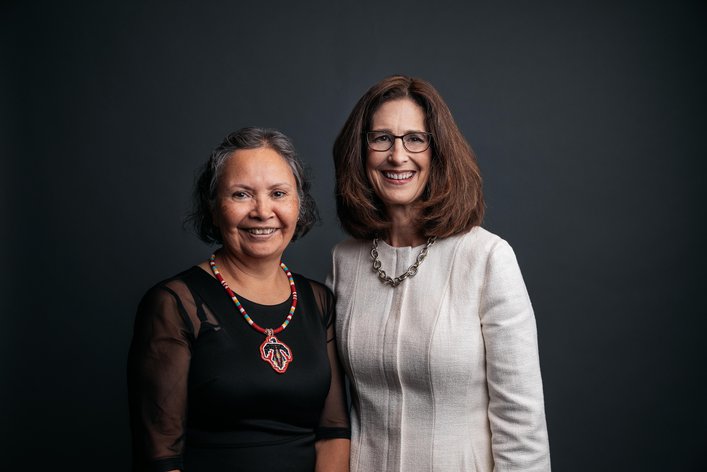Brenda Reynolds is a social worker of Saulteaux heritage. Working at Gordon’s Residential School providing counselling services and educating students about abuse, she learned in 1988 of the sexual abuse of 17 girls by a staff member. The disclosures led to the first litigated case of sexual abuse involving an Indian Residential School staff member in Saskatchewan and Canada and the largest class action settlement in Canadian history to date, as well as the Indian Residential School Settlement Agreement, an agreement between the Indigenous peoples who attended the schools, the Canadian government and churches who operated them. Since that time she has continued to work with survivors and their communities, addressing the intergenerational trauma resulting from these horrifying experiences.

In 2017, the AMA recruited Brenda to sit on its Indigenous Health Working Group, and she has been instrumental in determining how the AMA can best address the calls to action in the Truth and Reconciliation Commission of Canada’s report. The work of this group led to the development of AMA’s Policy Statement on Indigenous Health and the formation of the Indigenous Health Committee, on which Brenda now sits. It was established to promote and operationalize the recommendations in this policy statement, in particular the need to increase the number of Aboriginal professionals working in the health care field; ensure the retention of Aboriginal health care providers in Aboriginal communities; and provide cultural competency training for all health care professionals.Brenda has provided that training to AMA board and staff members, focusing on the history of Indigenous people in Canada, the history of Residential Schools, the Indian Residential Settlement Agreement, the legacy of the Residential Schools, intergenerational trauma, social and economic influences on health, and a brief history of Indian Hospitals. She has also presented to medical students at the University of Alberta and helped organise a group of almost 50 physicians to visit a First Nations community to learn first-hand about the challenges and the lack of resources faced by many First Nations patients.
Brenda has worked with many First Nations communities, including Alexis Nakota Sioux First Nation, Enoch First Nation, Tsuu Tina First Nation, and Hobbema (now known as Maskwacis), as well as for and with various government agencies, including Indian and Northern Affairs Canada, Alberta Family and Social Services, and the Ministry for Children and Families in British Columbia. In every role that she has played, she has worked tirelessly to improve the lives, the health and the wellbeing of the people she serves, especially of Indigenous peoples.